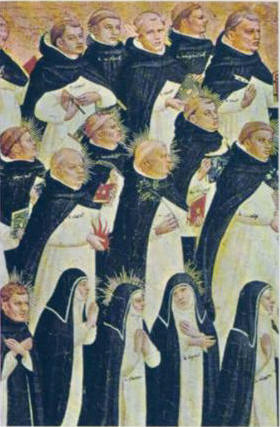Instructor: P. Fortier, M.A.
E-Mail Information: oldsoul1966@yahoo.com
Course Prerequisites: None
Employer Tuition Remissions:
Students receiving course tuition reimbursement from employers must submit a written request to the facilitator for any letters verifying attendance and/or earned credits.
Required Text
The Arts – World Themes, by Geraldine Nagle.
McGraw-Hill, ISBN: 0-687-12048-1
Course Packet:
Non-Western Art, by Lynn Mackenzie.
Cultural Diversity in Arts and Literature, Edna Garte (Editor)
Supplemental Readings will be provided or other readings may be required from Internet sources. The schedule of readings, topics and assignment due dates TBA
Reference: MLA Style Handbook - Details: TBA
Grading Scale:
90-100% A
80-89% B
70-79% C
60-69% D
0-59% E
Course Catalog Description:
The student will investigate representative ways in which man has sought meaning and purpose in his life, particularly as reflected in the cultural heritage of visual, musical and literary arts as well as in his philosophical endeavors. In this process, students will also be expected to identify and analyze the elements, concepts and terms of the various humanistic disciplines studied.
More Specific Course Description:
It will be our objective in this particular course to understand some of the diverse ways in which humans have sought to search, discover or find truth in their own personal life and the life of their community. We will try to ascertain such knowledge in a variety of ways. Class tasks may include any or all of the following: in-class arts experiences, lecture/discussions, small-group discussions, interpretive writing, group and individual creative projects, and field trips.
Missed Exams, Coursework & Attendance:
A missed exam may only be made up in case of documented emergency or extreme circumstances. Only one make-up exam is permitted. Missed exams that are not made up are graded ‘0’. The Final Exam cannot be made up. In case of emergency contact me for an Incomplete, to avoid an ‘E/F’ in the course. You are required to submit official documentation in the event of exam absences.
Coursework will drop by one letter grade if handed in more than one day late. No coursework will be accepted beyond one day late. This rule includes days falling on a weekend.
More than one absence is likely to impact negatively on a student’s grade. A student’s grade will drop by one letter grade if he/she accumulates more than three absences at the end of the term. You are responsible to obtain any lecture notes, assignments and supplemental materials on your own if you should be absent during the course. In case of absence, you are responsible for all class work, as well as information and materials given out. You should exchange phone numbers with two other students, to exchange as much information as possible. However, many in-class assignments cannot be made up.
Plagiarism/Cheating
Plagiarism of any material is a serious offense, not to mention illegal and may result in failure of the course. Outside sources may be used if properly referenced as such. Cheating will not be tolerated. If such is detected in a student's work, that student will not receive credit for that assignment. If plagiarism occurs a second time, the student will be assigned a zero for the course. Academic dishonesty could involve any of the following:
-
Having a tutor or friend complete a portion of your assignments.
-
Having a reviewer make extensive revisions to an assignments.
-
Copying work submitted by another student for the class.
-
Using information from INTERNET OR ONLINE information sources without proper citation
-
Having someone assist you in answering examination questions or cases, or having another edit your exam prior to submission
Note
This list is not all-inclusive. Please check with me ahead of time if you have any questions regarding academic integrity.
-
Please consult with the Library for procedures on Internet references.
-
Papers will be returned without a if they are not referenced properly. I will explain in detail requirements for referencing papers.
Class Discussion/Participation
Class discussion/participation is required to keep the class interesting and to maximize your learning. Students are required to actively participate in discussions. I encourage students to bring personal experiences to the class forum. However, in the true spirit of philosophical reflection, discussion will be directed toward the objective and philosophically relevant. Students are also encouraged to bring into the course discussion any relevant information from current events, from contemporary arts, from the media, from pop culture or from the political sphere.
Student Paper Requirements:
All written assignments must be typed. All writing must express your own ideas or understanding. Please refer to the section on plagiarism in this syllabus on referencing issues. Written work must be typed, double-spaced, using a New Times Roman #12 font, and stapled. All assignments should be labeled on the front page or cover sheet with your full name, the assignment title, the date and the course title. Please do not use plastic covers, binders, folders, duo-tangs or other complicated holders for your papers. Assignments on in-class experiences cannot always be made up. However, if you miss an assignment you should see me about a possible substitution. All students must submit the following items with their final paper copy:
-
Humanities Paper Evaluation Criteria
-
Copies of References (tentative)

Antonella de Messina
La Announciation
Bonus: Film Review
I will post paper guidelines and suggestions at later date. All paper topics must be submitted in writing and approved by the instructor before final paper submission. I will post paper guidelines, suggestions, and paper evaluation criteria at later date.
Learning Outcomes:
Upon successful completion of this course, the student should be able:
-
To understand some of the common or universal themes expressed in philosophy, religion and the arts throughout various cultures and societies.
-
To articulate, using examples, some of the ways in which people find meaning or truth using the history of ideas as a vehicle for artistic expression.
To understand some of the language and basic concepts used in both the practice and study of religion, philosophy and the arts.
To understand the historical context or foundation in the development of the humanities, especially their origins in the study and practice of philosophy.
Class Composure/Attitude
Students are expected to show respect and understanding in their rapport with other students and instructor.
It is the policy of the College and this class not to discriminate against any person on the basis of race, creed, color, sex, sexual orientation, age, marital status, handicap or national origin.
Furthermore, it is essential to philosophical inquiry to respect a diversity of beliefs, cultures, intellectual expressions or personal lifestyles wherever they may exist.
Course Grading Weights:
Exam I 15 Points
Exam II 15 Points
Exam III 15 Points
Reflection Paper 15 Points
Field Trip Report 1 10 Points
Field Trip Report 2 10 Points
Assignments/Participation 20 Points
Due Dates: Student Papers/Assignments/Field Trips/Exams: TBA
Exam format: 60/40% short answers, multiple choice, essays.

Philosophy: Foundation of the Humanities
-
Introductory Terms and Questions
-
Historical Influences; Geography and Timelines
-
Early Questions on the Nature of Truth
-
Socrates: Man, Method and Mission
-
Plato: On Beauty and Love
-
Aristotle’s Understanding of Fiction & Tragedy
Aesthetic – Philosophy of Art
-
Definitions, Goals and Key Questions
-
Approaches and Methods
-
The Structure of Film
-
Various Schools of Thought
-
Eastern Art
Comparative Religions
-
Foundations and Doctrines: East and West
-
Sacred Arts: Architecture, Sculpture, Painting, and Music
Cultural Arts (Garte, World Themes & Non-Western Art texts)
-
Drama & Tragedy: The Greeks and Beyond
Pop Culture
-
Ideas and Films
Contemporary Problems
-
Regional Issues
-
International and Global Issues
-
Relevance to the Arts
Schedule of Readings, Field Trips & Activities: TBA